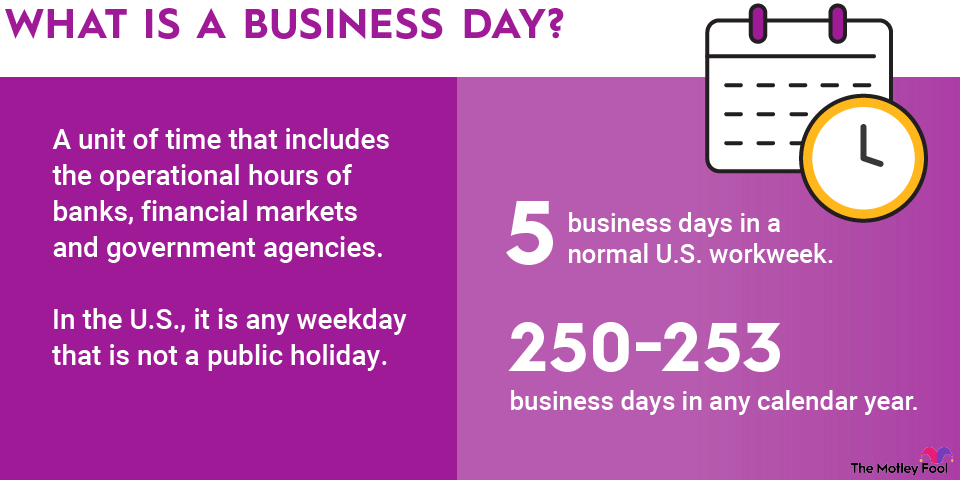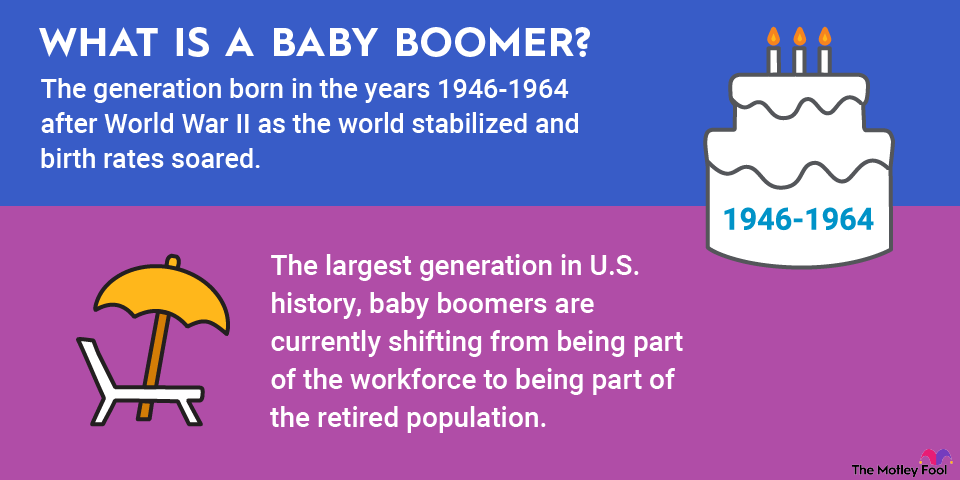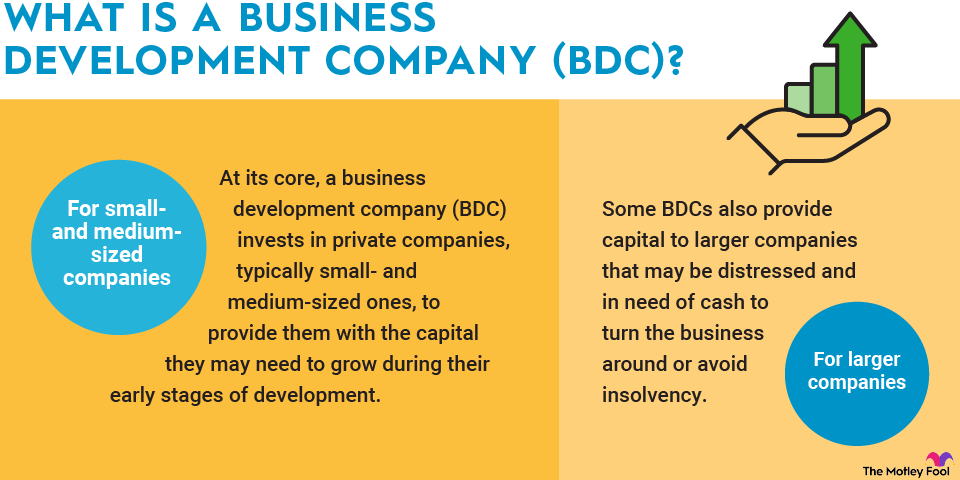Nothing official happens when the banks are closed, right? That may be why the concept of business days exists. A business day is a weekday that isn't a holiday, so basically, it’s any day your banker is in the office.

What is a business day?
A business day is a unit of time that includes the operational hours of banks, financial markets, and government agencies. In the U.S., a business day is any weekday that is not a public holiday. Business days usually align with stock market trading days.
There are five business days in a normal U.S. workweek, 52.14 weeks in a year, and 10 U.S. federal holidays. That works out to 250 to 253 business days in any calendar year.
Other countries with different workweeks define business days differently. In Mexico, for example, the standard workweek is Monday through Saturday.
How business days affect you
Business days usually define when something will be available or must be delivered. You're likely to see business day references in banking, shipping, contracts, and stock trades.
Banking
Your bank may tell you that funds from a recently deposited check will be released after some number of business days. If it's two business days and you deposit the check on a Friday, you can't use the funds until Wednesday -- or Thursday if the following Monday is a holiday.
Business days also come into play with online bill payment services. You might be able to initiate a next-day payment from your bank account to your American Express (AXP -1.55%) credit card on a Monday, for example. But if you order that payment on Friday, it won't hit your Amex account until the next Monday (or Tuesday if Monday is a holiday).
Shipping
Retailers and shippers commonly quote shipping times in business days. As an example, Priority Mail by the USPS promises delivery in one to three business days. In practice, that means your package could be en route for as long as six calendar days.
Contracts
Contracts may reference calendar days, business days, or both. Florida real estate contracts, for example, specify time frames in calendar days. However, if the time frame ends on a weekend or national holiday, the deadline typically extends to the next business day.
As another example, a business asset purchase agreement might specify a delivery deadline or asset inspection period in business days. If you're a party to a contract, it's critical to interpret those deadlines correctly.
Stock trades
Stocks trade and settle on business days. If you decide on the Saturday before Memorial Day that you need to own Apple, guess what? You can't get it done immediately. You could place the order with your brokerage on Saturday, of course. You'd specify that you want it executed "on the open" or within a certain time frame. Still, the trade won't happen until at least Tuesday.
Once your order is processed, you'll wait two business days for the stock to transfer into your account.
Related investing topics
Business day in practice
Say you've decided to cash out your Roth account, buy an RV, and travel around the country with your dog. And it’s important for you to hit the road as soon as possible.
Make this life plan on a Monday in March or August, when there are no public holidays, and you could possibly start your new life the next week. That's assuming the RV you want is waiting for you on a sales lot, of course. But decide to launch this endeavor on December 23 and the process will take longer. Why? Because there are fewer business days in the weeks ahead.
First, the Christmas holiday will delay the settlement of your liquidations. You may hit a second delay if you must transfer the cash to another account since New Year's Day is the following week.
The takeaway? Pay attention to business day references. In contracts and financial transactions, the difference between business days and calendar days can be inconvenient -- especially if it catches you off guard.


















